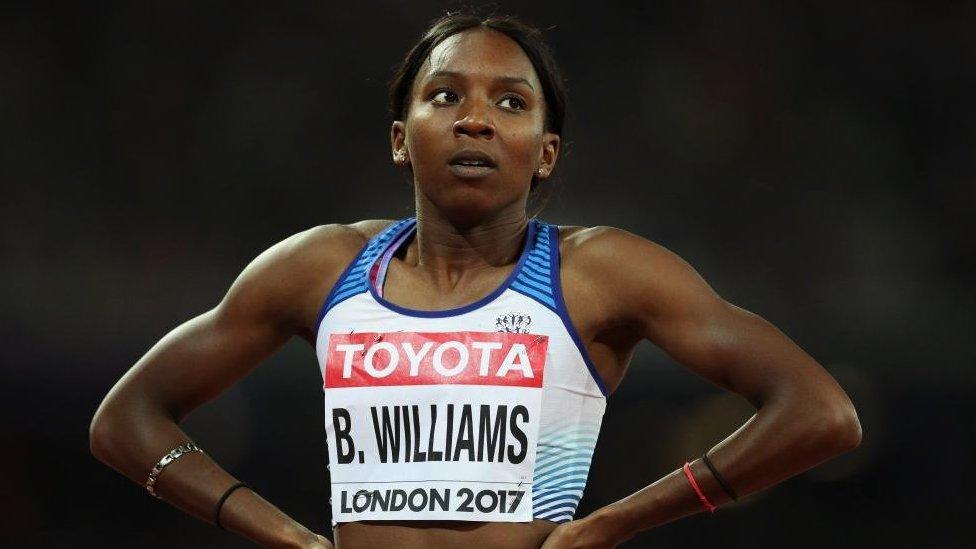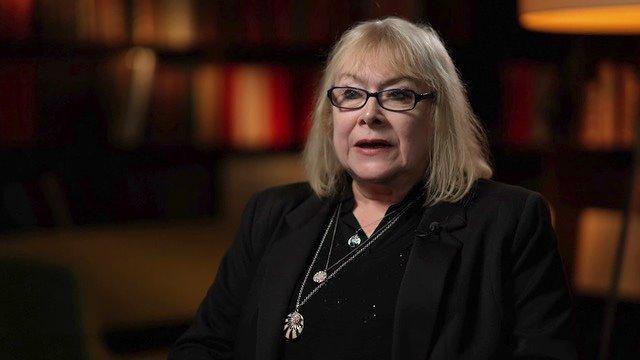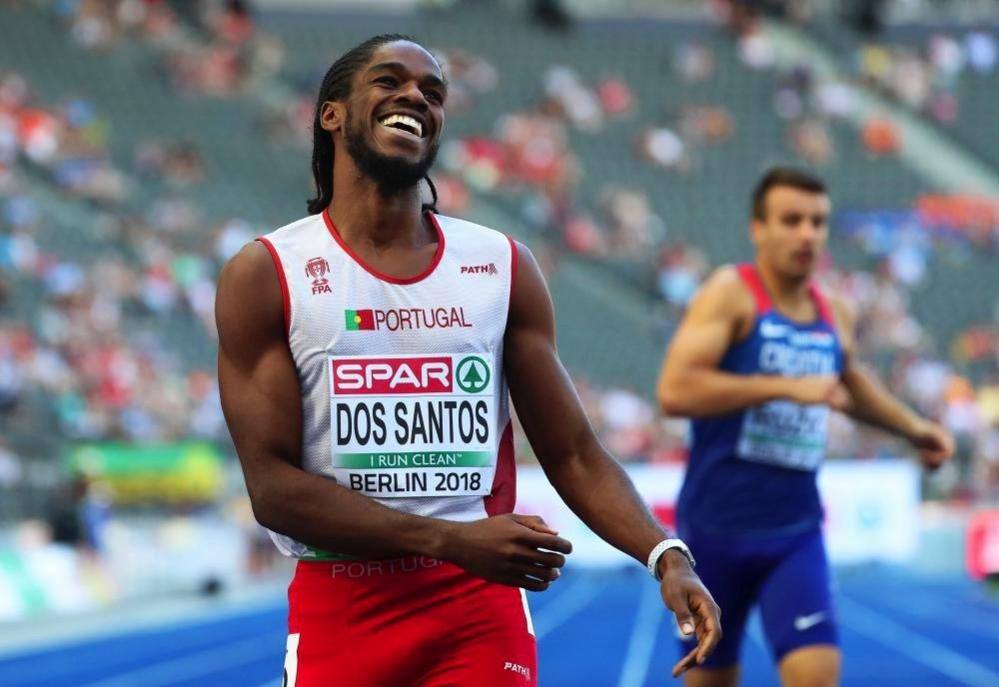IOPC investigator quit over Bianca Williams stop and search case
- Published

Bianca Williams and her partner, fellow athlete Ricardo Dos Santos, were stopped by police in Maida Vale
An investigator has revealed she quit her job at the police watchdog over the handling of a complaint about the stop and search of two black athletes.
Bianca Williams and Ricardo Dos Santos were stopped by police in July 2020 while driving through west London.
The Met Police referred the case to the Independent Office for Police Conduct.
Trisha Napier, who assessed the actions of the officers involved, said her investigation was later "watered down", something the IOPC vehemently denies.
In an exclusive interview, she told BBC Newsnight: "It felt very odd. It felt very unusual. It upset me greatly."
Ms Williams and Mr Dos Santos were stopped by police in west London on 4 July 2020.
The couple, whose three-month-old son was in the car, were handcuffed and searched for weapons and drugs, and footage of the incident was then widely shared on social media.
After searching the couple, and the vehicle, nothing was found and no arrests were made. Ms Williams and Mr Dos Santos said they had been racially profiled and stopped because they were black.

Trisha Napier was put in charge of deciding if officers had done something wrong - but she resigned three months later
Three days later, the case was referred to the IOPC, which oversees police complaints and investigates the most serious incidents involving officers.
Ms Napier, as lead investigator, was in charge of deciding whether any of the officers involved may have done something wrong.
However, she told Newsnight she felt her boss, the former director general of the IOPC, Michael Lockwood, later "interfered" with the case by requesting to see footage and documents. She said this hadn't happened with any of her previous cases.
On 30 July, after requesting documents relating to the investigation, she said he assigned the IOPC's regional director for London, Sal Naseem, to oversee the case and replace the person who had already been in that role.
This is disputed by Mr Lockwood and the IOPC, who say it was Sal Naseem's decision to take the role.
It came just days after the then Commissioner of the Met Police, Dame Cressida Dick, had publicly defended the officers involved in the stop and search during an interview on LBC radio. Dame Cressida told the station she did not "personally accept" the video footage had revealed racism.
Weeks later, in September, Ms Napier was told her assessment of the officers' actions, based on viewing footage of the stop and search, would be downgraded from possible gross misconduct to the lower charge of misconduct.

Ricardo Dos Santos said he and Ms Williams were stopped by police because they were both black and were driving a Mercedes.
Ms Napier told Newsnight: "I was supposed to be leading an investigation and my decisions were overturned by senior managers." Ms Napier, who had been at the watchdog for 17 years, and four as lead investigator, said that was "unprecedented".
The BBC understands her assessment was supported by colleagues who had worked on the case. It was also disputed by others.
Mr Lockwood said he wasn't involved in the decision to downgrade.
Ms Napier raised a formal complaint, stating the decision to overrule her assessment may have been "politically motivated". "In other words, what the investigation was going to be based on was watered down," she told Newsnight. "It casts serious doubt on its [IOPC] independence."
An internal inquiry into her claim concluded in the IOPC's favour, saying there was no evidence to support her allegations, and that even though it might be unusual to change a lead investigator's decision, it was allowed in the IOPC rules.
The inquiry did accept Mr Naseem had taken over decision-making on several occasions because the case would going to attract a lot of attention and was high profile.
It said senior staff taking over assessment decisions was allowed within IOPC rules, but acknowledged it was unusual.
Footage of the stop was shared widely on Twitter, after being posted by ex-Olympic champion Linford Christie
Ms Napier resigned from her post in November 2020 and is taking the watchdog to an employment tribunal.
"I felt I could no longer trust the organisation," she said. "The integrity of the organisation, in my view, was completely diminished and I could just no longer...work for them anymore."
In April last year, the IOPC announced that the five officers involved in the stop-and-search would face gross misconduct proceedings. No date has been set for them to be heard.
Bianca Williams and Ricardo Dos Santos were unavailable for comment.
The Met told Newsnight it was "not aware of any conversations" taking place between the force and the IOPC, while the IOPC said it was "not unusual, or unique" for the organisation's director general to review evidence himself.
It strongly denied decisions "were influenced by anything other than the evidence during this investigation".
The public comments made by Dame Cressida on LBC were not investigated by the IOPC, which Ms Napier says she requested. The IOPC said there was "no indication" the commissioner "behaved in a manner which would justify the bringing of disciplinary proceedings".
An IOPC spokesperson said it was also not unusual that assessments of police officer conduct "change as the evidence develops".